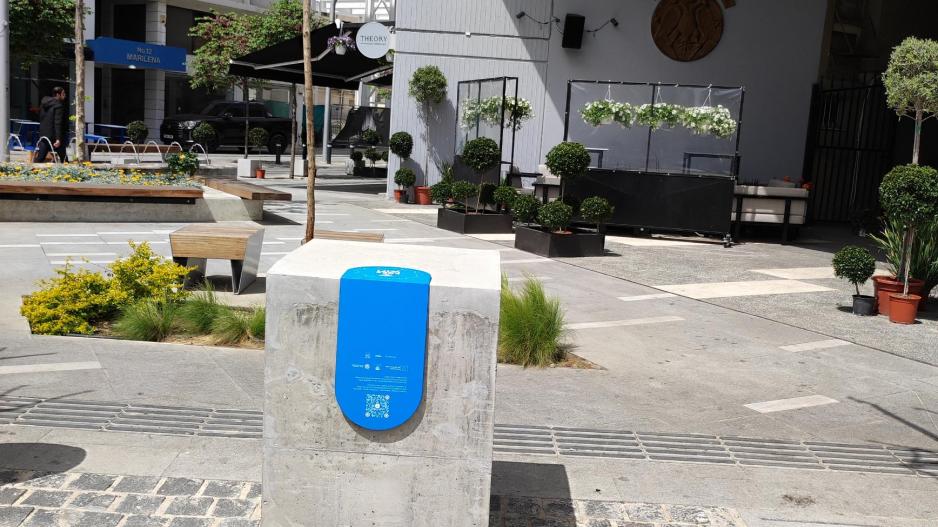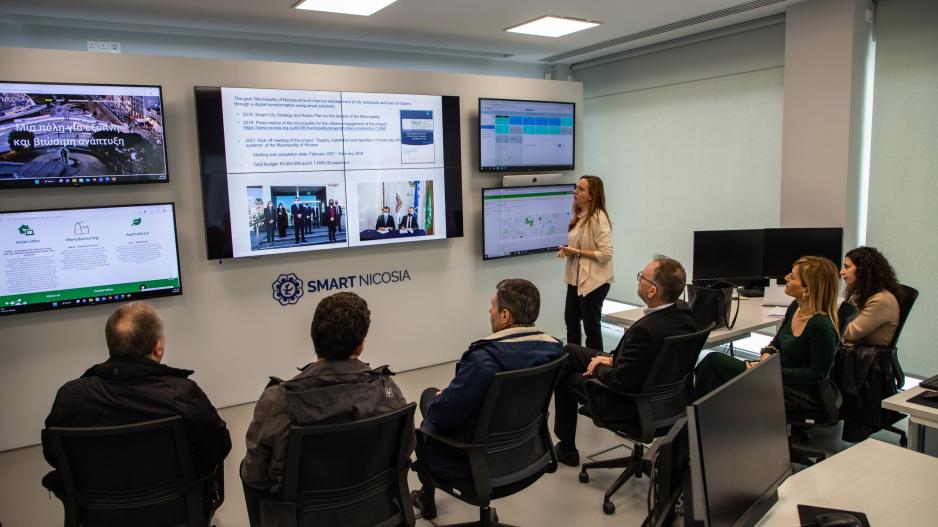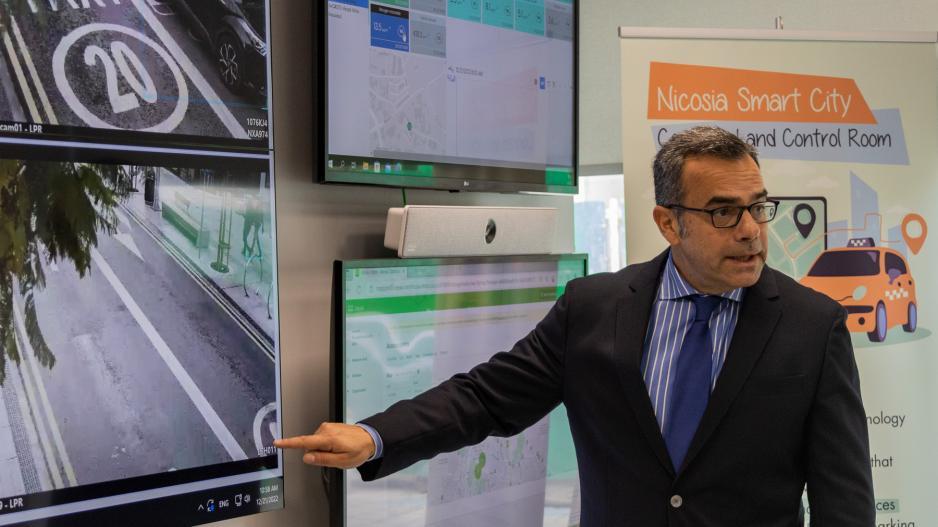Nicosia's transformation into a smart city: Enhancing quality of life and sustainability
Nicosia is set to undergo a significant transformation into a "smart city" by early 2024, bringing numerous benefits and an improved quality of life for its residents through the implementation of “smart systems”. The plan includes providing free internet access citywide, delivering real-time updates on air quality, offering insights into pedestrian and vehicular traffic, facilitating the search for available parking spaces, and even monitoring waste bin status in different areas.
Currently in a trial phase, the smart systems are expected to become fully operational by the end of 2023. Encouragingly, the progress is already visible, while the completion rate of the smart city infrastructure is on track to surpass 80%.
In 2018, the Municipality of Nicosia developed a 10-year strategic plan focusing on three key areas: infrastructure, IoT systems, and digital transformation. Recognizing that sustainable urban development goes beyond physical infrastructure, the plan emphasizes the importance of leveraging Information and Communication Technologies (ICT) to enhance services and bolster the city's competitiveness.
The primary objective of the "Smart Nicosia" project is to employ new technological means to enhance the management and functionality of the urban environment. It's important to note that all development projects in Nicosia are designed with a "Smart by Design" approach, ensuring the integration of smart concepts throughout the implementation process.
The project has garnered support from the European Commission, with representatives from the Directorate-General for Regional and Urban Policy (DG REGIO) and the Directorate-General for Development of the Ministry of Finance expressing their strong support in a presentation which was held recently and featured round table discussions regarding infrastructure, vertical solutions, legislation, and broader policies related to digital transformation projects across Europe.

In recognition of its achievements, the Municipality of Nicosia's Smart City Project "Smart Nicosia" secured the top spot for smart green solutions among 100 candidates from Europe as part of the European Green Digital Coalition initiative in March 2023. The project, carried out in collaboration with Nokia and CYTA, underwent extensive evaluation and data analysis by Carbon Trust, a British company specialized in data analysis for climate change issues. Furthermore, Nicosia's project was prominently featured at the Mobile World Congress (MWC), an annual technology and innovation conference held in Barcelona, where representatives from the European Green Digital Coalition presented the standout case studies on "smart green solutions."
Additionally, Nicosia ranked first in the category “Human Capital and Lifestyle” among small European cities in the European Cities & Regions of the Future 2023 ranking compiled by fDi Intelligence, the opinion magazine of the Financial Times group. This marked the fifth time, since 2016, that Nicosia has claimed the top position, affirming its efforts to evolve into a modern European city with a multicultural identity and a thriving business center. The report also recognized Nicosia's progress, ranking it 8th among small European cities for its Foreign Direct Investment (FDI) Strategy, climbing one position compared to the 2020/21 period.
Furthermore, Nicosia Mayor Konstantinos Georgadzis, expressed satisfaction with the city’s achievements and highlighted the responsibility to create an environment and infrastructure that fosters the growth of human capital, enabling the new generation to shape the future of the city. It's worth noting that the project is being implemented within the framework of the "THALIA 2021-2027" Cohesion Policy Program, which is co-financed by the EU.
The smart cities of tomorrow will seamlessly integrate technology and infrastructure, revolutionizing urban living. Intelligent systems will optimize energy usage, reduce congestion, and enhance public safety, while connected sensors and data analytics will enable efficient waste management and responsive transportation networks. At the same time, citizens will experience personalized services through smart devices, fostering sustainability and quality of life. The EU seems to take significant steps towards this direction; this is why cities across the continent should take advantage of the Union’s funding tools and technical expertise.







